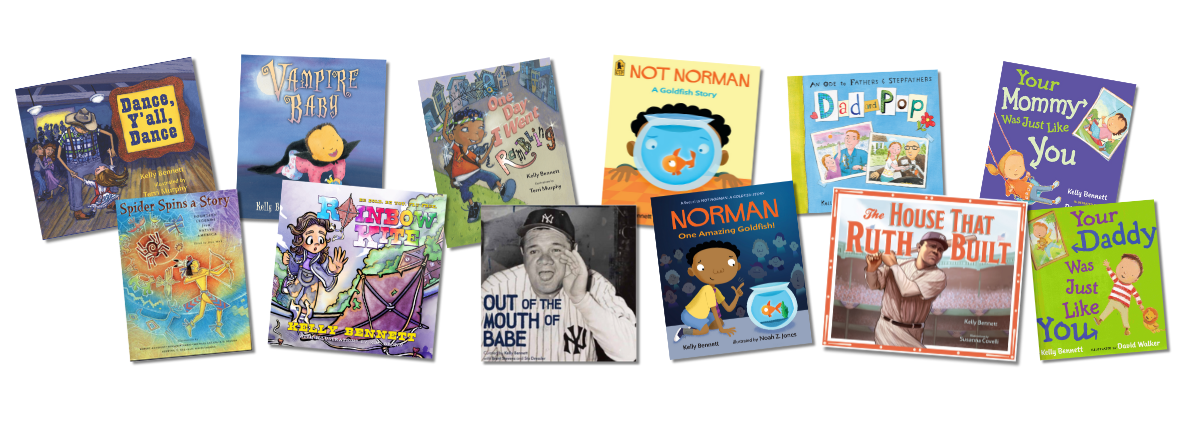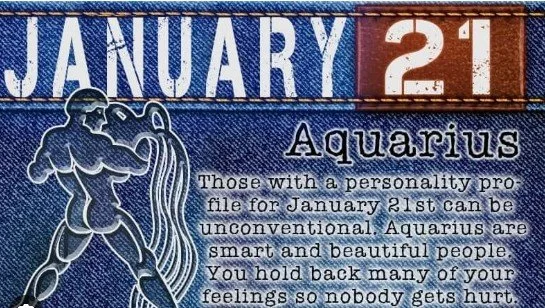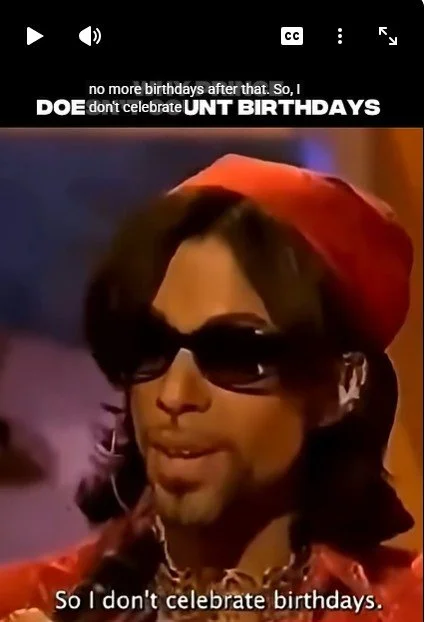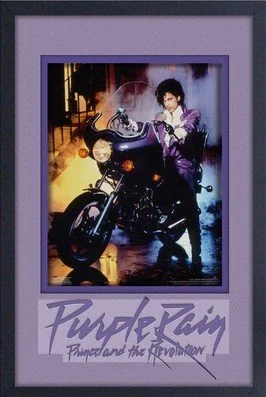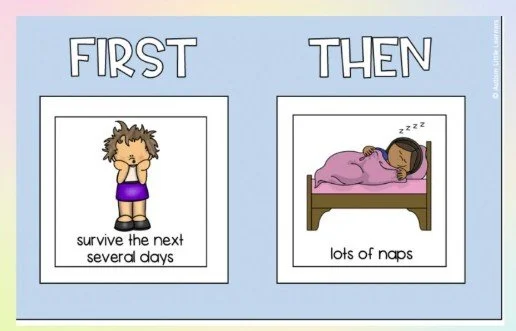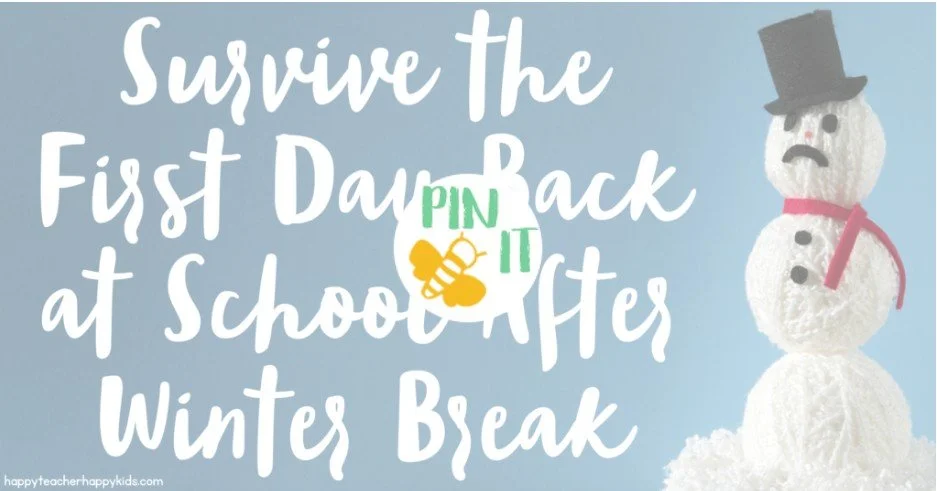Poetry Challenge #105-Happy Birthday to You-Know Whoo ever!
Happy Birthday! Every day is somebody’s birthday! Who do you know who has a birthday coming up soon?
If it’s YOU then, according to A.I. Astrology, you are:
The zodiac sign is Aquarius (♒︎), the Water-Bearer, an Air sign ruling from roughly January 20th to February 19th, known for being innovative, intellectual, humanitarian, independent, and sometimes rebellious
Poetry Challenge #105
Happy Birthday to You-Know-Who!!!!
Can you write a poem to that person telling them why they’re special or what they mean to you?
Work on it until every word is exactly the one you want.
Do you want your poem to rhyme?
Do you want it to have a certain number of syllables on a line?
Is it a list poem or a story? You get to decide.
You can even give it to the person as a birthday gift!
Set the timer for 7 minutes.
Start writing!
Don’t think about it too much; just do it.
Wouldn’t be much of a birthday without a song. Here Goes: YOU SAY IT’S YOUR BIRTHDAY by the Beatles
*Cindy Faughnan and I began this 7-Minute Poetry Challenge more than 3200+days ago. We now take turns creating our own prompts to share with you. If you join us in the 7-Minute Poetry Challenge let us know by posting the title, a note, or if you want, the whole poem in the comments.
Click on Fishbowl link below and sign up to receive email notifications from Kelly's blog (aka The Fishbowl):
SUBSCRIBE TO THE FISHBOWL
Poetry Challenge #104-Prince Day
Do not ask me why: It’s not raining. The oldies station isn’t playing. And there is not a speck of glitter, wild hair, lace or feathered boa in sight. Still, for whatever reason, Prince’s* classic “Purple Rain” is stuck in my head…on replay.
Not the whole song either. Just the part everybody knows. And I do mean EVERYBODY. Sing with me:
Purple rain, purple rain
Purple rain, purple rain
Purple rain, purple rain
Blah-blah blah-blah la-la la-la in the purple rain...
“Prince’s definitive power ballad “Purple Rain” peaked at #2 on the Hot 100 on November 17, 1984 behind Wham’s “Wake Me Up Before You Go Go”. It was the title track of the album and namesake of a film in which Prince plays “The Kid” who has nostalgic yearning for a pure love.... Perhaps appropriately, it was the last song Prince ever played live, closing out his concert in Atlanta on April 14, 2016.”
Oh my word, we must have watched that movie seventy times (back then HBO featured movies for a month). But I digress:
Poetry Challenge #104
Purple Rain
If Prince could do it—and create a classic and make zillions in the process, then we can too. In the inimitable style of Prince:
Choose one concrete noun (Rain for instance, but not rain).
Choose one color (purple is off limits).
Put them together in whichever order pleases you. Use those words to begin a poem.
If you are feeling lazy, copy the pattern of “Purple Rain” (then you’ll only have to invent that last line.)
Hopefully the two words you’ve chose will fire up your inner the rock star!
Set the timer for 7 minutes.
Start writing!
Don’t think about it too much; do it! Rock OUT!
*And no it’s not his birthday. Prince Roger Nelson, aka “Prince” was born June 7, 1958, he died April 21, 2016. But his music lives on! Cindy Faughnan and I began this 7-Minute Poetry Challenge more than 8 years ago. We take turns creating our own prompts to share with you. If you join us in the 7-Minute Poetry Challenge let us know by posting the title, a note, or if you want, the whole poem in the comments.
Click on Fishbowl link below and sign up to receive email notifications from Kelly's blog (aka The Fishbowl):
SUBSCRIBE TO THE FISHBOWL
Poetry Challenge #103-Back to Biz
Who knew going back to business as usual would be so soooooooo. Our youngest grand (far right, can’t dare say “littlest”) sobbed because he was having too much fun over the break, his brother Dylan (left in pic), who turned 11 on the 6th, was thrilled because he was looking forward to celebrating his birthday at school—they do make a big fuss. As for the other two???? And what about you???
Usual Suspects…or ???
Poetry Challenge #103
Back to Biz
Write a poem about the first day back . . . to whatever?
Work?
School?
Back after a lovely vacation?
First day back after a miserable one….
Are you excited/miserable/relieved? Does anything surprise you? What do you like best? Least?
Try writing your poem in couplets—two lines that rhyme.
Set the timer for 7 minutes.
Start writing!
Don’t think about it too much; just do it.
HappyTeacherHappyKids.com has a fab post with refreshing “back to biz” survival tactics. Click and read!
Cindy Faughnan and I began this 7-Minute Poetry Challenge more than 8 years ago. We take turns creating our own prompts to share with you. If you join us in the 7-Minute Poetry Challenge let us know by posting the title, a note, or if you want, the whole poem in the comments.
Click on Fishbowl link below and sign up to receive email notifications from Kelly's blog (aka The Fishbowl):
SUBSCRIBE TO THE FISHBOWL
Poetry Challenge #102 May Old Resolutions be Forgot
Depending on where and when you’re reading this, it’s either out with the old or in with a new year. Good tidings to you and your kin!
“Good tidings” I love that phrase. I always assumed “tidings” was some ye old sailor’s greeting, referring to the tides, as in, high tide, tide in, tide out…some cheery send off along the lines of “sail on my wayward son/they’ll be …”
I was wrong.
According to my Google AI Overview, tidings “comes from Old English tidung, meaning "an event, an occurrence, or a piece of news". It's linked to Old Norse tíðendi (events, news) and Germanic words for time, like German Zeitung (newspaper).”
Nothing whatsoever to do with the sea. I’ve been wrong about a lot of things. And that’s exactly what this prompt is all about! So read on my wayward friends:
Poetry Challenge #102
May Old Resolutions Be Forgot
At the beginning of the new year, we all make those resolutions—with the best of intentions. The most common resolutions people make are: exercise more, eat less, spend more time with family, get organized, save money, learn a new skill.
Forget whatever you have resolved every other year…wipe the slate clean.
Write a poem of glad tidings for the coming year which includes one resolution.
It can rhyme…or not.
It can be short…or not.
It must contain some positive, hopeful, seaworthy feeling! Onward!
Set the timer for 7 minutes.
Start writing!
Don’t think about it too much; just do it.
Cindy Faughnan and I began this 7-Minute Poetry Challenge over 8 New Years Days ago. We take turns creating our own prompts to share with you. If you join us by writing a poem, let us know by posting the title, a note, or if you want, the whole poem in the comments.
Click on Fishbowl link below and sign up to receive email notifications from Kelly's blog (aka The Fishbowl):
SUBSCRIBE TO THE FISHBOWL
Poetry Challenge #101-Topsy Tervy Christmas
I don’t know about you but I am FREEEEEEEZING!
And I’m dreaming…already…of summer and winter’s just getting started. Imagine, December 21st -ish the shortest night of the year here in the North will be the longest day of the year in the South.
Speaking of the other side of the world: if we were in the Southern Hemisphere, instead of singing about “chestnuts roasting on a open fire” and “riding through a winter wonderland…” we’d be “sunbathers toasting ‘neath a bright orange sun” and “jet skiing through a surfer’s paradise.”
Wonder how much a ticket to Australia, Bora Bora…Jamaica maybe…
Poetry Challenge #101
Ode to a Topsy Tervy Christmas
Imagine turning this holiday season upside down.
Either by zipping off to the opposite side of the world and celebrating the holiday there—on Safari or a sunny beach somewhere south.
Or by upending your holiday traditions and doing things upside down and backwards.
Write a poem about it. Have fun. Be silly! Sprinkle in some holiday magic dust.
Set the timer for 7 minutes.
Start writing!
Don’t think about it too much; just do it.
The Kranks tried to do just that. Watch how that turned out…
*Cindy Faughnan and I began this 7-Minute Poetry Challenge more than 8 years ago. We now take turns creating our own prompts to share with you. If you join us in the 7-Minute Poetry Challenge let us know by posting the title, a note, or if you want, the whole poem in the comments.
Click on Fishbowl link below and sign up to receive email notifications from Kelly's blog (aka The Fishbowl):
SUBSCRIBE TO THE FISHBOWL
Poetry Challenge #98-Beach Time
Winter hit this week. It is FREEEEEEEZING! I know deep in my rattlin’ bones that I’ll get used to the cold (soon, please) even embrace wearing bulky comfy clothes to brave the outdoors—or, more likely, use the cold as an excuse to stay inside: Baby it’s cold outside!
Huntington Beach—my Beach Time then
But right now I am asking myself why did I ever leave home? Gidget take me back to HB! So bear with me, pull a flowered shirt on over your sweats and let’s head to the beach! Hey Moon Doggie, wait for me!
Poetry Challenge #98
Beach Time
Beach Time is way more than just a thing to do. It’s a mindset. And best, it’s way Cool! So let’s get beachy!
Begin by listing whatever comes to mind when you think of a day (or night) at the beach. Here are a few ideas to get you thinking:
Frothy surf, bikinis, surf boards, sand, shells, waves, orange sherbet sunsets, coconut and cocoa butter, Gidget & Jeff aka Moon Doggie
Now you try:
Fine! If “sand in your pants” is what Beach Time means to you, go with it.
Create a poem using a many of those beachy words as you can. Here’s a little theme music to get you in a beachy mood: Da-na-nah-na-nah-nah-na…WiPE OUT!
Set the timer for 7 minutes.
Start writing!
Don’t think about it too much; just do it.
*Cindy Faughnan and I began this 7-Minute Poetry Challenge more than 3 years ago. We now take turns creating our own prompts to share with you. If you join us in the 7-Minute Poetry Challenge let us know by posting the title, a note, or if you want, the whole poem in the comments.
Click on Fishbowl link below and sign up to receive email notifications from Kelly's blog (aka The Fishbowl):
SUBSCRIBE TO THE FISHBOWL
Poetry Challenge #96: Hot Diggity Dog!
Mere days—days— after post baseball season and we’re already craving hot dogs. I’m serious (nitrates aside) we love hot dogs! Okay, maybe not me so much but, I love the bun. I love the relish. I crave sauerkraut. And what I really, really miss, is any excuse to say Hot Dog!
“Mimi, what’s for lunch?”
“How about hot dogs?”
“HOT DOG!!!”
Poetry Challenge #96
Hot Diggity-Dog
In honor of those lazy, crazy…tasty Hot Dog Days of Summer, let’s write a concrete poem. Concrete poems are words arranged in a shape to give extra meaning to the subject of the poem. Maybe the words form the branches of a tree or letters drip down the page to show rain. Sometimes there’s a surprise hidden in repeated words like the marshmallow in the concrete poem below created by Cindy*.
For this one step grab an old-school writing implement (aka pencil, marker, pen). Unless you’re a “Cindy”, it’s harder to create a concrete poem on a device. Begin by visualizing a hot dog. Now, to turn it into a concrete poem you can:
*Sketch the outline of a hot dog and fill it by writing hot dog hot dog hot dog over and over and over . . . until you are fed up with writing hot dog.
*Or, fill your hot dog outline with a poem about hot dogs or a hot dog memory.
*Or, draw a hot dog with words associated with hot dogs.
*Or, use letters as Cindy did by using hot dog part words to create an image. Use other words to dress up your hot dog. Do you like ketchup? Mustard? Onions? Chili? Sweet relish? Marshmallows?
Grab Your Marker
Get Set
Hog-Diggity Draw! (I do relish a good concrete poem…with mustard.)
#TheColombianHotDog trucks set up in Bridgeport & Norwalk, CT—close to the grandboys—HOT DOG!
Poetry Challenge #95: Coo-Coo For Coconuts
Back to Standard Time ticked-in a little too soon, too dark, and too cold…it has me longing, already for lazy, crazy summer. And so, even though it’s not (according to the calendar), let’s pretend it’s National Pina Colada Day!
Whether you do or do not like getting caught in the rain . . .
Whether you are or are not into health foods or champagne . . .
Regardless your opinion on waking up at midnight—
Let’s put the lime in the coconut and bust out in poetry Pul-lee-e-e-e-sa! PLEEESE!
Poetry Challenge #95
Coo-Coo for Coconuts
Thinking coconuts, tropical islands, pineapples ripe for the plucking, and coo-coo birds write a poem.
And yes, because the notion that there is even a National Pina Colada Day is slightly coo-coo, use as many words as you can think of which include the letters C and O in that order—and if you really want to cut loose, try including a bird call or two!
Set the timer for 7 minutes.
Start writing!
See what toucan caw-caw come-up-with!
*Cindy Faughnan and I began this 7-Minute Poetry Challenge more than 8 years ago. We now take turns creating our own prompts to share with you. If you join us in the 7-Minute Poetry Challenge let us know by posting the title, a note, or if you want, the whole poem in the comments.
